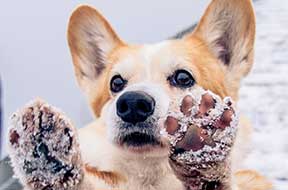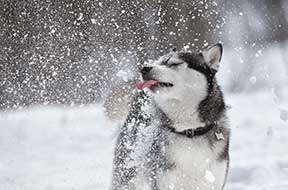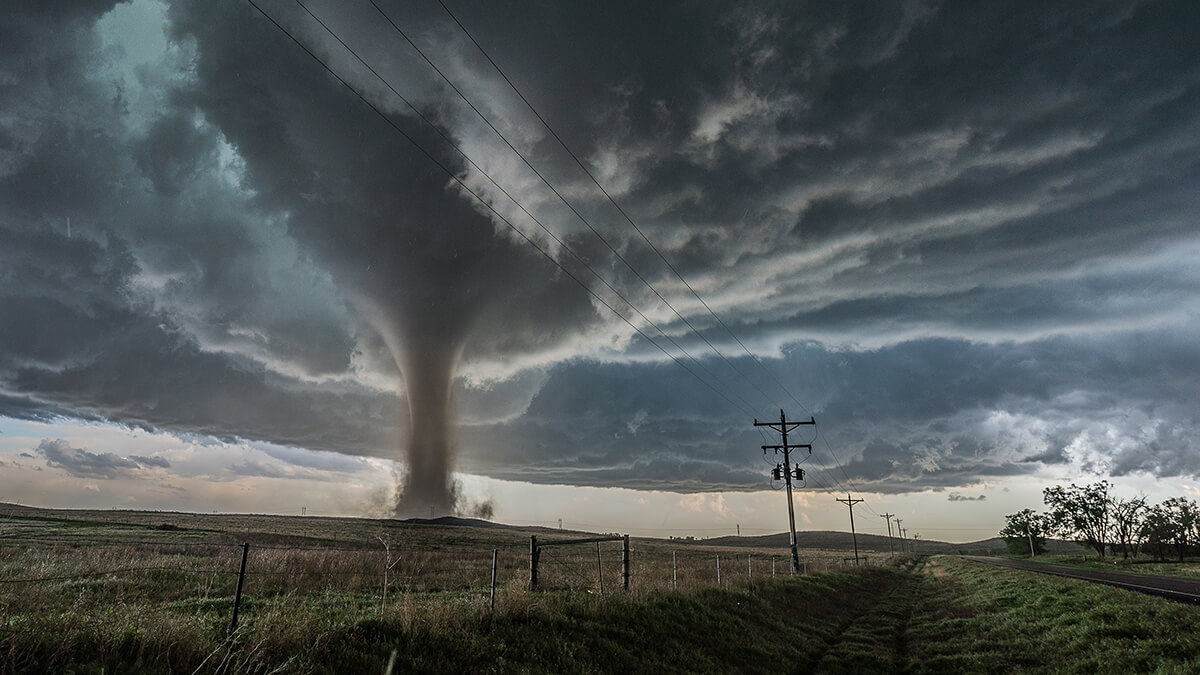Cold weather pet safety

If your pet is anything like mine, it probably loves the snow and being outside in the cold weather. Just like humans, all pets are different, so their cold tolerances vary. My dog can stay outside for hours, while my parents' dogs would rather cozy up inside than take one step in the "polar vortex."
Here's a few tips to keep our furry friends safe and warm during the cold weather months!
Avoid dangerous spills
Some ice melting substances may contain chemicals and are a danger to animals. The American Veterinary Medical Association (AVMA) has a list of household hazards you should keep away from your pets, such as antifreeze, cleaning products and certain foods. If your pet is poisoned, call your veterinarian or the ASPCA Animal Poison Control Center at 1-888-426-4435 right away.
Protect those paws

When your pets come inside, wipe down their paws, legs and belly to remove chemicals and keep snow and salt from clumping between their toes. Rub petroleum jelly or other paw protectants onto their paws before going outside. Cracked paws can cause discomfort and allow substances to soak in, which your pet may try to lick later.
Prevent dry skin
You should keep your home humidified because coming out of the cold into the dry heat can cause irritated skin. Bathe your pet as little as possible as this can remove essential oils and increase dryness. As always, make sure your pet has access to water.
Maintain a healthy weight
If you notice your pet losing weight, you may want to give them extra food as they are using more energy to stay warm. However, some pets will gain weight if they don't exercise that much. Figure out what your pet needs, and adjust to find the right balance.
It might be sweater weather

Your pet already has on a handy winter coat, so you should avoid shaving it down to the skin. Longer and thicker hair will help keep them warm as they play outside. If your pet has short hair, a sweater may be a good idea. Make sure you have a couple of them on hand, because wearing a wet sweater may make your pet colder.
If temperatures are below freezing, no pet should be left outside for long periods of time.
Never leave your pet in the car
Your furry friend may love car rides, but if you're going somewhere you can't bring your dog inside, it will be better to just leave them at home. A vehicle gets cold faster than you may think. If left in a cold car for too long, they could get hypothermia and freeze.
Keep them collared

Having a lost or runaway pet is terrible, and imagining them out in the cold weather by themselves is even worse. If you don't have a fenced-in yard, always leash and collar your dog. If your dog has a collar with updated information on it, this could help bring them back home if they run away or get lost.
Staying cozy
Make sure your pet has a warm and comfortable place to sleep. Floors and drafts can make your pet feel chilly, so a blanket is perfect for them. If you have an outdoor pet, provide them with a closed-in shelter. This needs to be big enough for them to stand up in, but also small enough to contain heat. You may have to insulate the shelter with straw or other material to keep your pet warm.





